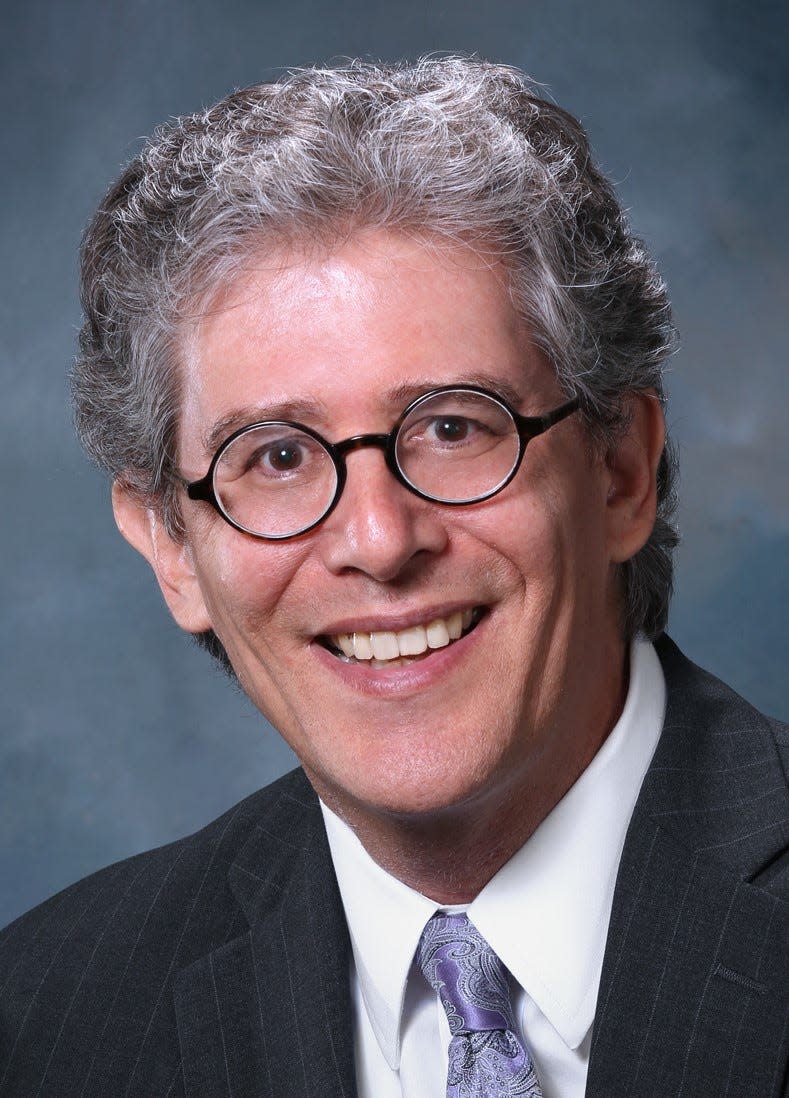Voices of Faith: Gratitude for our interfaith relationships

Where am I noticing gratitude this fall?
On a simple, societal level, I am grateful for the expression of democracy we witnessed as a nation on Election Day. There have been so many locations of anxiety and stress this fall. It was a sigh of relief to see a clear example of decency and order.
For many Jews, this fall has been filled with renewed and amplified expressions of antisemitism.
A few weeks ago, synagogues around the country marked the fourth anniversary of the Pittsburgh shootings where 11 Jews were massacred as they worshiped on a Saturday morning. That was the first time in American history where we were attacked in our house of worship.
Building on the hatred of the “Unite the Right” rally in Charlottesville, where we witnessed the chants of “Jews will not replace us” in front of a Reform synagogue on a Friday night, we have now seen a stream of shootings based on this “White Replacement Theory.” Six months after Pittsburgh, we witnessed the synagogue shooting in Poway, near San Diego. Shootings in Christchurch and Austin followed. On Jan. 6, 2020, in the midst of the chaos and rioting, we witnessed a handful of the main culprits wearing T-shirts referring to their antisemitic hatreds.
The fall election season also trotted out a number of antisemitic candidates, who thankfully were defeated in many races. But we are left with their hate speech, their threats, their attempts to normalize white fears and white anxiety. And then we get the social media posts of Kanye West and Kyrie Irving, and the drumbeat of antisemitism can be overwhelming. It is clear to me, that four years after Pittsburgh, when American Jews were stripped of their naivete that America would be a safe place to live, our stress and anxiety levels have not lessened, but rather increased. Antisemitism has resurfaced in our marketplace of fear and hatred.
Jewish communities now regularly pay off-duty officers to try and keep them secure. It helps some. But the true antidote for this anxiety has been the dramatic support of love and concern from my interfaith partners in Hudson. After the Pittsburgh shooting, the Rev. Peter Wiley from the First Congregational Church in Hudson, and the Rev. Charlotte Collins Reed from Christ Church Episcopal reached out to see how they could support their Jewish neighbors. Hundreds of people from their churches joined my small synagogue, Temple Beth Shalom, for a healing service the following Saturday morning. And we regrouped a month later for our first Interfaith Thanksgiving Service at TBS.
Each year, we have reconvened this special expression of love and support as our three communities celebrated Thanksgiving, and we are preparing for our fifth annual gathering, this Sunday at 7 pm.
When times get rough these expressions of support and love give me and my community something to hold on to. Something to center on when the world gets dark. Last winter, when a shooter entered the synagogue in Colleyville, Texas, and kept the group at bay for 12 hours, Rev. Collins Reed sent me a simple text in the middle of the chaos, saying she was thinking of us. We weren’t alone. Others wanted to help and support.
This Thanksgiving, I am profoundly grateful for my interfaith clergy partners who have committed themselves to this important relationship, and even more so, I am touched, and warmed by the holiness of this group of interfaith neighbors who will come to share their gratitude with us this Sunday evening. As the psalmist writes, “it is good to give thanks to God.”
I am grateful for these neighbors, who dedicate themselves to the simple act of loving their neighbor as themselves.
(Rabbi Michael Ross is the Rabbi at Temple Beth Shalom in Hudson and the Senior Jewish Educator at Kent State Hillel. He also teaches in the Jewish Studies department at Kent State.)
This article originally appeared on Record-Courier: Voices of Faith: Gratitude for our interfaith relationships

